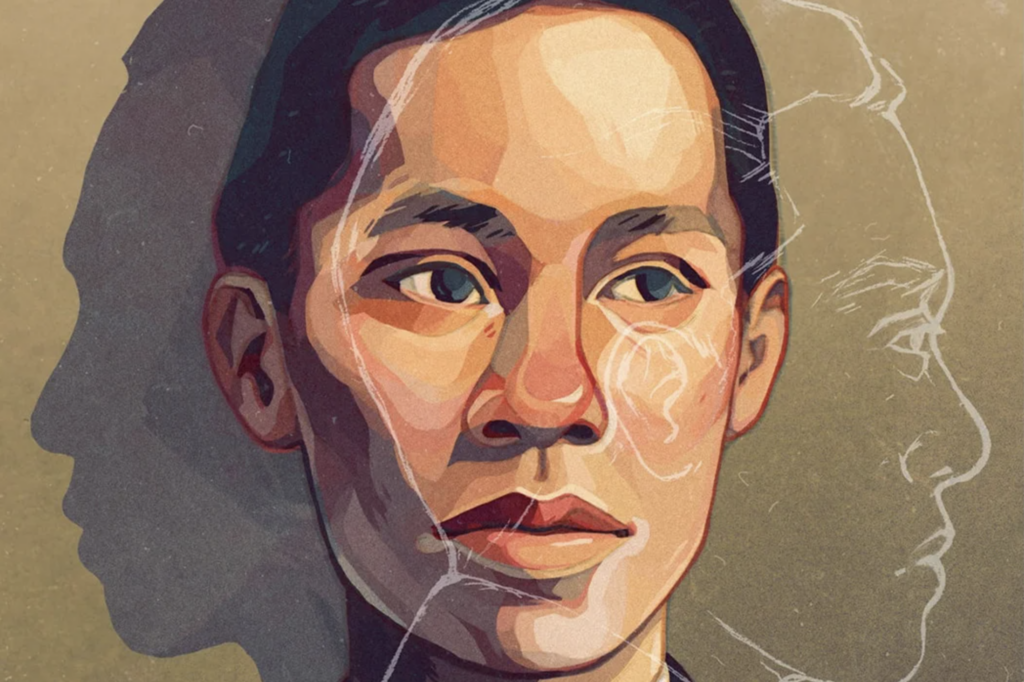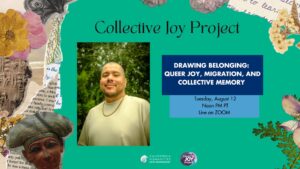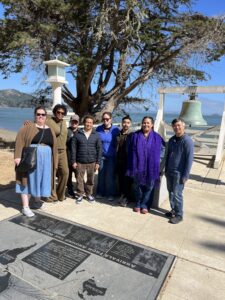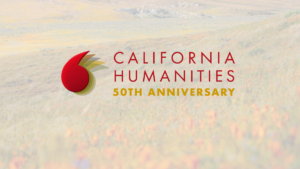Above: From the cover of America Is in the Heart by Carlos Bulosan. Illustration courtesy of Penguin Classics.
October is Filipino American History Month, recognizing the history, culture, and contributions of Filipino Americans to the United States. 2024 is also a major election year, and with a little over a month before people head to the polls, we are spotlighting a Humanities for All Quick Grant-supported project that expertly uses musical composition and historical writing to blend the Filipino American experience in California with commentary on the ongoing project that is American democracy.
Composer Andres R. Luz’s Bulosan: On American Democracy features not only music, but also excerpts from novelist and poet Carlos Bulosan’s novel America is in the Heart and the essay “Freedom from Want.” These selected passages invite audiences to consider Bulosan’s advocacy of American democracy and human rights, relative to his experiences as part of a persecuted minority living on the US West Coast during the 1930s–1950s. To further build upon the project’s humanities elements, Luz featured the composition as part of two public programs with lectures and Q&A discussion to illuminate sociopolitical issues for students and general audiences in January 2024.
Below, Luz dives into the history behind this work, why it is important for contemporary audiences to learn and experience Bulosan’s story, and what we can learn moving into fall elections.
Carlos Bulosan’s writing focuses on the contradiction of America’s democratic vision. How did his experiences in California in the first part of the 20th century—his life among migrant farmers, tenant dwellers, colonial subjects, and struggling workers— inform his vision of freedom?
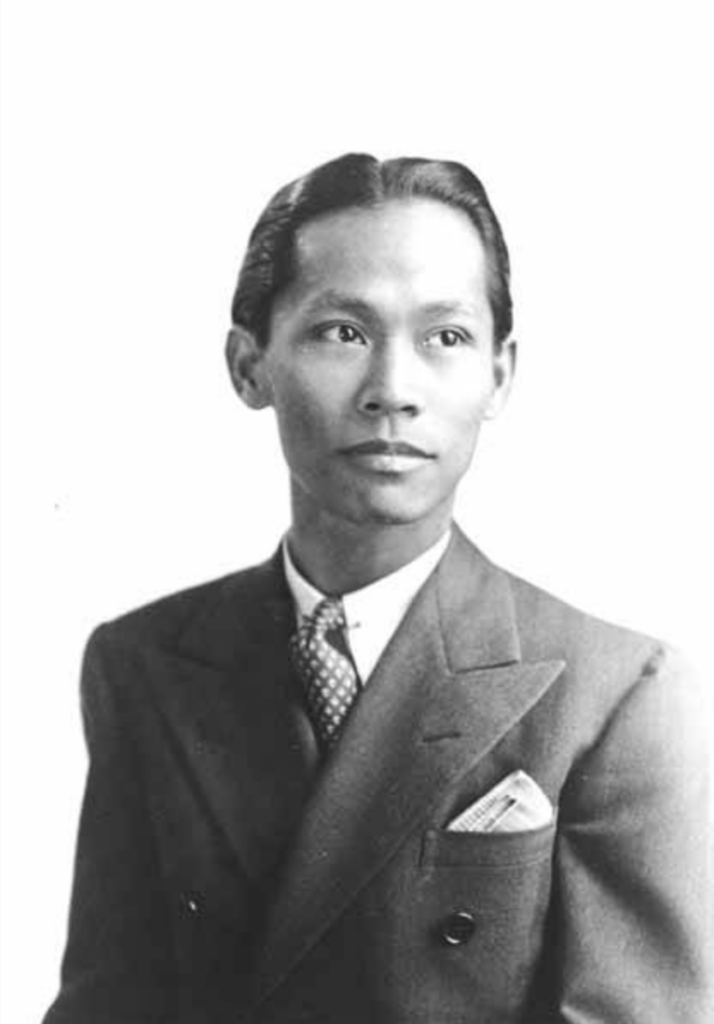
In Carlos Bulosan’s semiautobiographical novel America is in the Heart, the author recounts the teaching of the American-style public education system that he and countless Filipino schoolchildren of the poor and working-class received during the American Colonial Period lasting between 1898-1946. Touting nationalist concepts and values, generations of young Filipinos of that time became allured by idealized notions of democracy, liberty, capitalism, meritocracy, and socioeconomic equality that awaited them in faraway America, now presumably extended to them by virtue of being adopted by their host nation. These prospects stood in great contrast to the previous centuries of the Spanish imperial “hacienda” system which favored rich, powerful elites and marginalized landless citizens. The American dream of opportunity thereby fired the imagination of the Philippine working class to seek out the possibility of a prosperous life in a new land.
However, what these generations of Filipinos eventually came to experience first-hand was contradictory to the lessons they valued and were taught in the classrooms back home. Conditions of oppressive discrimination, systematized marginalization, and racial violence instigated by many native-born, white Americans against people of color newly arrived in the nation served as debilitating reminders that minorities were not wholly welcome to the US apart from their willingness to work in industries demanding manual labor under harsh environmental and working conditions for unsustainable wages. Despite that the Philippines was considered an American territory, Filipinos were classified as “nationals” or “wards” of the US—neither foreigners who could be deported, nor citizens permitted to work in professional, white-collar jobs despite any post-secondary education and training cultivated in their country of origin. These immigrant Filipino men eventually became known as the manongs (an Ilocano term of respect, translated into English as “elder brothers”) who arrived in the United States West Coast largely between the 1920s and 1940s to work as low-income, migrant, agricultural and/or factory laborers, and/or workers in the food service and hotel hospitality sectors chasing the fabled American Dream they learned about in their childhoods.
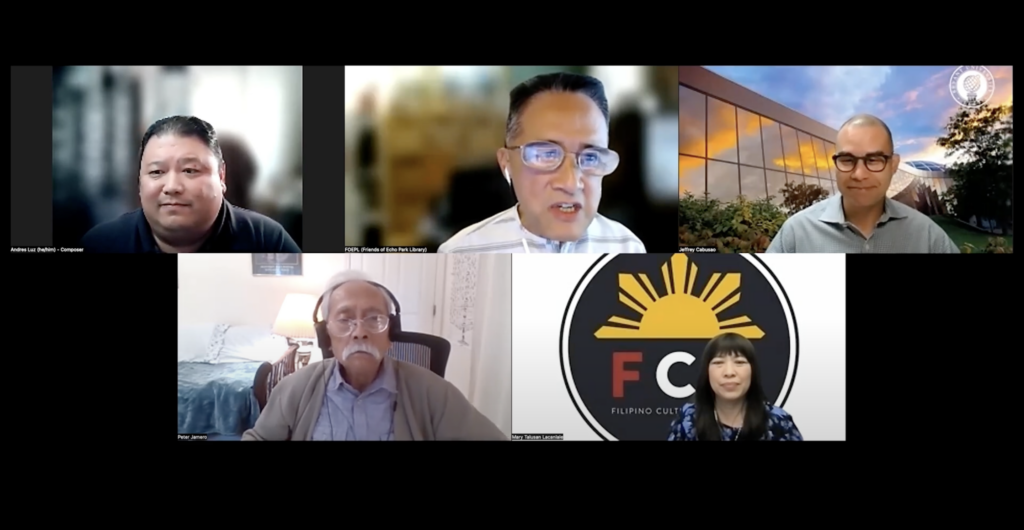
Carlos Bulosan’s writing recounts this dissonance between these ideal and real worlds, the paradox of the kindness and cruelty by Americans which he and his comrades encountered, and his own personal journey to reconcile the promises of America with its challenges. By reflecting deeply over a lifetime of experiences, as well as playing a key role as a labor activist working on behalf of his community, he eventually arrived at the conclusion that America was a work-in-progress, that American was yet “our unfinished dream” that remained worth fighting for, that America merited one’s patient sacrifice as it grew “into bright maturity through our labors.” 1 Bulosan therefore viewed the struggles that he and the Manongs endured as the “growing pains” that the country must experience before emerging into full maturity as the visionary “City on a Hill,” proclaimed by John Winthrop in 1630.
How did Bulosan’s writing inspire you to compose this piece (Bulosan: On American Democracy)? How does music provide a platform for a unique public humanities experience?
As America is in the Heart documents Bulosan’s reflective journey through literature in reconciling American ideals with his and his colleagues’ personal experiences, I wanted to similarly construct a musical journey for large ensemble that moved from darkness-to-light, or conflict-to-mediation-to-resolution, in kind. The music aims to sonically illustrate and enhance the moods and emotions behind the words, as well as to help amplify the drama in a concentrated duration of time for the listener.
As a Filipino-American who emigrated to the US, my wish was to pay homage to and raise awareness of Bulosan’s literary contributions and social activism. I find that despite the growing body of knowledge and scholarship dedicated to Bulosan’s legacy, his reputation largely remains unknown to many, and his story is worth communicating and appreciating. Additionally, given the political tenor of the times, I find that there is much relevance in Bulosan’s words for contemporary audiences in its defense of American democracy and the value placed upon natural rights and intellectual and artistic freedoms, and a thriving and well-educated populace.
Musical evocations of the January 2021 insurrection at the US Capitol and the August 2017 Unite the Right Rally at Charlottesville, are both challenges to American democracy that create contrasts that enhance listeners’ interest, providing contemporary context in counterpoint to Bulosan’s words. The combination of spoken word and music is therefore natural fit, in this case providing a means to raise awareness of unsung voices to an otherwise uninitiated audience, and in the case of Bulosan: On American Democracy, music and spoken narration is able to be skillfully connect ideas and meanings to allow listeners the opportunity to contemplate the presented issues to achieve greater insight and appreciation.
“America is based on the idea that it is a place for those seeking freedom, opportunity, and equality. If the United States aims to continue in this brave and bold experiment of democracy, it must not take democracy for granted.”
Andres Luz
As we approach our fall elections, what can we learn from Bulosan about our own place and responsibility to the democratic process?
What we inherit from Bulosan’s example is the awareness that even in our country, which has a rich and storied history of doing great things, there are those that are left behind and have been underserved and oppressed as we have moved forward in our development. We must not forget nor overlook this truth. America is based on the idea that it is a place for those seeking freedom, opportunity, and equality. If the United States aims to continue in this brave and bold experiment of democracy, it must not take democracy for granted. It must aspire toward its ideals and pursue justice for all. It must know that democracy is tenuous, and that to properly realize its tenets, the nation must strive for the betterment of all its inhabitants. This is the American dream.
Ultimately, we as a people must recognize that we hold the power to steer the direction of this nation, a concept which has held true since the country’s founding. In his 1943 essay “Freedom from Want,” Bulosan asserts that “we are the mirror of what America is. If America wants us to be living and free, then we must be living and free. If we fail, then America fails.” Thus, America will be a nation that we as a people choose for it to be, so in November let us make the right decision. Long live representative democracy in the United States of America.
1 Bulosan, Carlos. America is in the Heart, 312. Seattle: University of Washington Press, 2000.
This project was created with support from a Humanities for All Quick Grant.
About Andres Luz: Exemplified by Bulosan: On American Democracy, many of Dr. Luz’s compositions are informed by folkloric elements of his Filipino-American heritage, which have served as the source inspiration for a number of his works including the concertante piece for marimba solo and mixed ensemble.
In 2023, Luz’s dissertation composition, BULOSAN: ON AMERICAN DEMOCRACY for Narrator, Wind Symphony, and Fixed Media was the Winner of the American Prize in Composition in the University-Level Wind Ensemble Division, as well as the 2nd Place among Social Justice-Related Works among University-Level compositions submitted that year.

